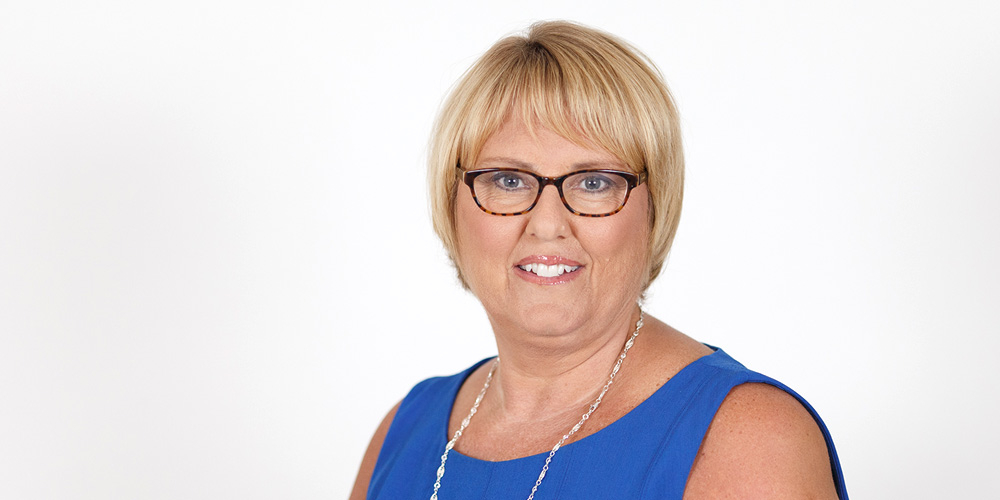
Professor Louise Newman, Director of the Centre for Women's Mental Health, writes about the Victorian Government Royal Commission into Family Violence recommendation to establish Family Violence Advisors within mental health and drug and alcohol services.
Women with mental health, drug or alcohol issues are vulnerable to ongoing abuse and violence. They are often the least equipped to protect themselves and can be entrapped in violent relationships with little understanding of the factors contributing to their victimisation.
Systematic literature reviews have found that domestic violence is associated with increased risk across the spectrum of mental disorders from depression and anxiety to psychosis and perinatal problems (Trevillion et al 2012).
Around 50 per cent of women with depression and 60 per cent of those with post-traumatic stress disorder have experienced interpersonal violence including psychological abuse and coercive control by an intimate partner. A 2013 study found around 30 per cent of domestic violence begins when a woman is pregnant raising serious issues for foetal wellbeing and development. (Howard et al 2013)
The Victorian Government Royal Commission into Family Violence recommendation to establish Family Violence Advisors within mental health and drug and alcohol services recognises the needs of this group of women and the relationship between mental health and relational violence. The release of the Royal Commission’s report raises key issues and promises a more coordinated and focussed response to the needs of those experiencing violence and their children.
It is a rare opportunity to reflect on the complexity of the problem and to move beyond a fragmented approach that has not adequately addressed the emotional and psychological reality of the experience of conflict and violence.
Responses to interpersonal violence must include integration of services and supports and reach out to the most vulnerable. It is increasingly recognised that women experiencing domestic violence can have a range of mental health issues resulting from both their current relationships and the legacy of early childhood abuse and trauma.
A woman who comes from a background of domestic violence with few role models of healthy relationships and intimacy has an increased risk of later relationship difficulties and abuse. For those with a history of sexual abuse and violence there may be ongoing psychological problems including depression, anxiety and difficulties managing emotional states and relationships.
These women have a greater risk of re-victimisation or repeated patterns of relational problems and are vulnerable to significant mental health problems. In this context drug and alcohol use becomes a way of managing difficult emotions and depression as well as escaping a painful reality. It is the underlying experience of low self-esteem and invalidation of emotional needs that fuels distorted relationships.
These issues need to be a focus for better understanding and effective intervention. The use of traditional psychiatric labels and concepts in this area has resulted in a disregard of other contributing factors leading to the pathologization of victims and a culture that blames women for their own abuse.
The arguments of early feminism of the 1970s about the position of women perhaps are worthy of being revisited here as it has become clearer that diagnosis is not free from gendered assumptions and blindness.
The most noticeable diagnosis in this debate is that of Borderline Personality Disorder, a condition associated with early trauma and abuse, which is too often used in a pejorative way to describe difficult patterns of behaviour rather that acknowledging it as a post traumatic condition very much related to the ongoing abuse and victimisation of the predominately female sufferers.
There is a clear need to better inform mental health diagnosis and treatment about the sequelae of early abuse and trauma and the associations with current relationship dysfunction in a way which is informed by the experience of survivors.
The Commission has recognised that public hospitals are well placed to provide a safe place for women and children to disclose family violence.
As well as recommending Family Violence Advisor positions be located in mental health and drug and alcohol services, it also calls for increased investment in training health professionals to identify and respond to family violence.
This is smart thinking.
All clinicians and mental health workers involved in women’s health need to be better trained in these issues and there is an urgent need to develop mental health programs focussed on the needs of women in high risk relationships so they are supported and empowered to make decisions in the interests of themselves and their children.
A focus on safety and women’s rights can be integrated into an improved understanding of the complexity of interpersonal violence and its prevention. The Commission provides many opportunities for this reflection and an imperative to act.
Read related content from the Women's
-
 Increased focus on hospitals’ role in family violence response welcomed
Increased focus on hospitals’ role in family violence response welcomedHospitals are uniquely placed to provide women with a safe place to disclose family violence and link them with family violence services
Learn more -
 Family violence is a health issue
Family violence is a health issueViolence before pregnancy is a strong indicator of violence during pregnancy
Learn more -
 New guides to help strengthen responses to family violence
New guides to help strengthen responses to family violenceThree Guides have been developed to help hospitals further strengthen their responses to family violence
Learn more -
 Professor Louise Newman heads the CWMH
Professor Louise Newman heads the CWMHOne of the country’s leading infant mental health experts, Professor Louise Newman, is Director of the Centre for Women’s Mental Health.
Learn more